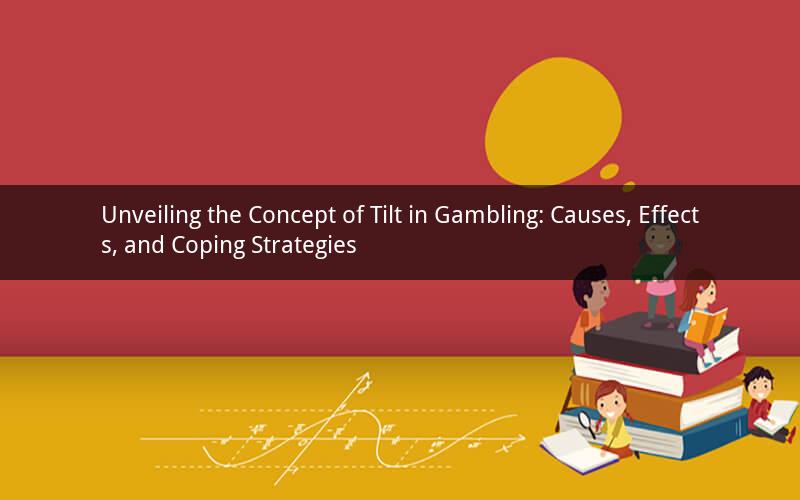
Tilt, a term frequently used in the gambling world, refers to a psychological state that can significantly impact a player's decision-making and performance. In this article, we will delve into the meaning of tilt in gambling, its causes, effects, and ways to cope with it. Additionally, we will address five frequently asked questions about tilt to provide a comprehensive understanding of this issue.
What is tilt in gambling?
Tilt, in the context of gambling, refers to a mental and emotional state that occurs when a player's judgment becomes impaired due to frustration, loss, or overconfidence. When a player is tilted, they may make irrational decisions, chase losses, or take excessive risks, leading to further negative outcomes.
Causes of tilt in gambling
1. Losses: One of the primary causes of tilt is experiencing consecutive losses. When players lose, their confidence can plummet, making them more susceptible to tilt.
2. Frustration: Tilt can also be triggered by frustration, whether it's from a poor hand, a bad beat, or a series of losses. This emotional response can lead to irrational behavior.
3. Overconfidence: Players who are on a winning streak may become overconfident, leading them to take excessive risks. This overconfidence can result in tilt when the player eventually faces losses.
4. External factors: External factors such as time constraints, stress, and social pressure can also contribute to tilt.
Effects of tilt in gambling
1. Poor decision-making: Tilt can lead to poor decision-making, as players may chase losses or make irrational bets in an attempt to recover their money.
2. Increased risk-taking: Tilt can make players more susceptible to taking excessive risks, leading to further losses.
3. Decreased enjoyment: Tilt can make the gambling experience less enjoyable, as players may become fixated on their losses rather than the game itself.
4. Damage to relationships: Tilt can also negatively impact relationships with friends, family, or partners, as players may become irritable or aggressive.
Coping strategies for tilt in gambling
1. Take breaks: If you notice signs of tilt, take a break from gambling to clear your mind.
2. Set limits: Establish and stick to betting limits to prevent tilt from occurring in the first place.
3. Focus on the game: Instead of fixating on losses, focus on the game and the enjoyment it brings.
4. Practice self-awareness: Recognize the signs of tilt and address them promptly.
5. Seek support: If tilt becomes a persistent issue, consider seeking support from friends, family, or a professional.
Frequently asked questions about tilt in gambling
1. What are the signs of tilt in gambling?
Signs of tilt include frustration, anger, irrational decision-making, chasing losses, and increased risk-taking.
2. Can tilt be prevented?
Yes, tilt can be prevented by setting betting limits, taking breaks, and practicing self-awareness.
3. How long does tilt typically last?
The duration of tilt can vary from person to person, but it usually resolves within a few minutes to hours.
4. Is tilt a sign of problem gambling?
While tilt is not necessarily a sign of problem gambling, it can be a precursor to developing gambling-related issues.
5. Can tilt be treated?
Yes, tilt can be treated through various methods, including counseling, therapy, and self-help strategies.
In conclusion, tilt in gambling is a psychological state that can have a significant impact on a player's decision-making and performance. By understanding the causes, effects, and coping strategies for tilt, players can minimize its occurrence and enjoy a more positive gambling experience. Remember to stay mindful of your emotions and seek support when needed to overcome tilt and maintain a healthy relationship with gambling.